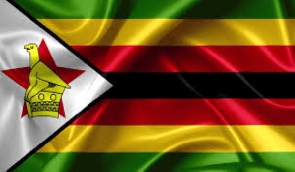Zimbabwe’s main opposition leader Nelson Chamisa said Tuesday that his Movement for Democratic Change party will hold mass demonstrations to force the government to address the country’s political and economic problems. He also appealed to the international community to ease a deepening humanitarian crisis.
After Zimbabwe’s main opposition party threatened a lawsuit, the police gave in and lifted a ban on this rally Tuesday in Mbare, one of Harare’s poorest townships.
At the rally, MDC leader Nelson Chamisa said his party would hold mass demonstrations to force President Emmerson Mnangagwa’s government to address the country’s mounting problems.
"So we have come here to bury poverty, to bury dictatorship, to bury chaos, to bury violence, to bury high unemployment, to bury all the problems you’re facing, to bury absence of electricity and water in your homes. This is our last space to see these things. These things you are seeing, you will see no more," he said.
At the same rally, Chamisa said he was worried by the worsening humanitarian crisis in Zimbabwe.
"International partners, please help us. Hear our voice where we are crying for you to help us. Forget about our problems in the country, help us on the humanitarian front,” he said.
Monica Mutsvangwa, Zimbabwe’s information minister, said she would comment only after hearing the opposition leader’s address on national television late Tuesday.
Chamisa said the law allows the MDC to hold rallies when it considers it necessary, and vsaid 2020 will be a year “demonstrations and action.”
However, it remains to be seen whether authorities will agree and let the rallies take place. Officials in the current government and previous one under Robert Mugabe often refused permission for opposition events and used force to break up ones that took place.
According to the United Nations, Zimbabwe is probably facing its worst humanitarian crisis with more than 5.5 million in need of food aid because of recurring droughts and the moribund economy.
Africa News of Thursday, 23 January 2020
Source: allafrica.com

















